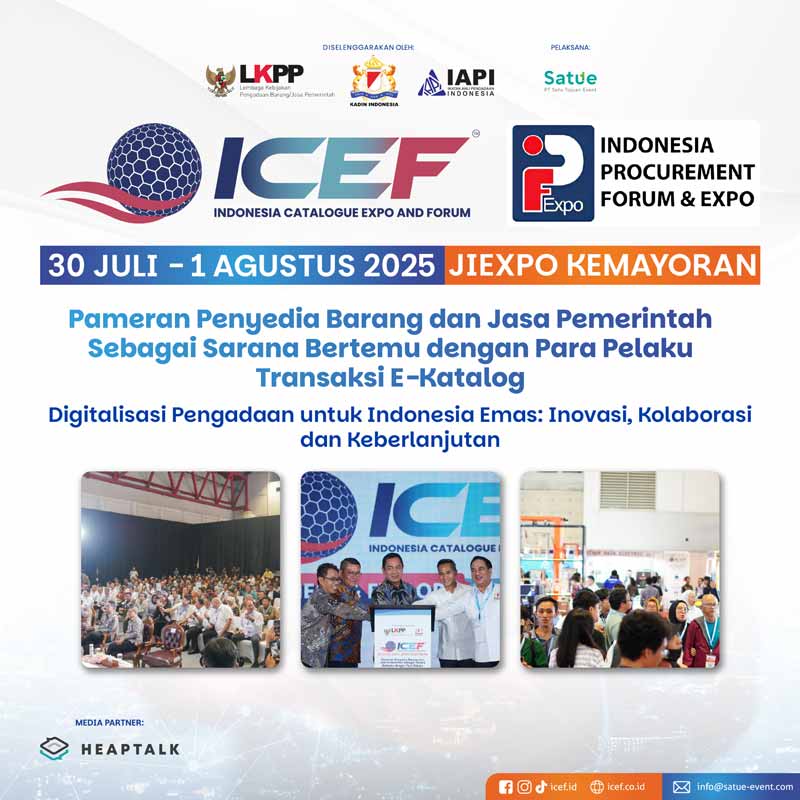Heaptalk, Jakarta — The rapid pace of digital transformation has become a cornerstone of global economic development, reshaping industries, creating new job opportunities, and fostering innovation and collaboration. The latest findings from the Indonesia Digital Economy Outlook 2025 by CELIOS highlight key projections and challenges facing Indonesia’s digital economy as it continues its upward trajectory.
The digital economy is expected to grow significantly across various sectors, including e-commerce, online transportation, digital payments, digital lending, and online travel. Using ARIMA modeling to forecast economic indicators, CELIOS has outlined notable trends:
- E-Commerce: The e-commerce sector is anticipated to grow modestly in 2025, reaching a transaction value of Rp471 trillion. This marks a slight increase of 0.5% compared to 2024, reflecting subdued consumer purchasing power and the potential impact of increased VAT rates.
- Online Transportation: The online transportation sector consistently recovers, with transaction values projected to reach Rp12.66 trillion in 2025. This growth signals opportunities for job creation and optimism for the sector’s market potential.
- Online Travel: The online travel sector is forecasted to grow by 5.1%, achieving a transaction value of Rp12.37 trillion in 2025, up from Rp11.77 trillion in the previous year.
- Digital Payments: The digital payment sector is poised for robust growth, with transaction values expected to soar to Rp2,908.59 trillion in 2025, marking a substantial increase of 16.73% from 2024.
- Digital Lending: Digital lending is set to grow significantly, with the Lending Book forecasted to reach Rp365.70 trillion in 2025. This expansion is attributed to the widespread adoption of financial technology and increasing financing needs.
Barriers to be resolved in the digital economy
Despite its promising growth, Indonesia’s digital economy remains faces several challenges that could hinder its long-term potential:
- Investment Decline and Workforce Dynamics: A “tech winter” characterized by reduced investments has led to widespread layoffs in the technology sector. Indonesia’s share of Southeast Asia’s digital investment declined from 38% in 2020 to 25% in the first half of 2022, highlighting increased competition from regional players such as Vietnam and the Philippines.
- Human Capital Deficit: Indonesia’s Human Capital Index (HCI) remains lower than that of neighboring nations, with a score of 0.54 in 2020 compared to Vietnam’s 0.69. This stagnation in workforce skills and education quality limits Indonesia’s competitiveness in the global market.
- Digital Infrastructure Disparity: Digital lending data reveals a stark contrast between Java and other regions, with lending in Java reaching Rp737.31 trillion by mid-2024, while non-Java areas lag significantly at Rp188.45 trillion. Insufficient digital infrastructure and limited financial literacy contribute to this disparity.
- Cybersecurity Concerns: Indonesia ranks 48th out of 176 countries in the National Cyber Security Index, scoring below the global average. Despite regulatory advancements and the adoption of technologies like blockchain, cybersecurity threats remain prevalent in online commerce, social media, and financial institutions.
The Director of CELIOS, Nailul Huda, highlighted that Indonesia’s National Cyber Security Index currently stands at 63.64, falling below the global average of 67.08 points. This score reflects ongoing challenges in the country’s cybersecurity landscape. According to his statement, these deficiencies and the high incidence of cyberattacks targeting social media, e-commerce platforms, and financial institutions exacerbate the nation’s data security vulnerabilities.
Indonesia is increasingly grappling with cybersecurity challenges, particularly concerning data breaches and activities on the dark web. During the first half of 2023, the most frequently shared information related to Indonesia on the dark web included victim disclosures and exposed data. Victim announcements accounted for 53% of postings, indicating that data breaches or thefts often result in public exposure of victim information, likely stemming from cyberattacks or hacking incidents.
Indonesia must adopt comprehensive strategies to address these challenges. Strengthening human capital through enhanced education and skill development is vital to meeting modern workforce demands. Investments in digital infrastructure, particularly in underserved regions, will be crucial for equitable growth. Furthermore, advancing cybersecurity measures and fostering regulatory collaboration can safeguard the digital ecosystem against emerging threats.














